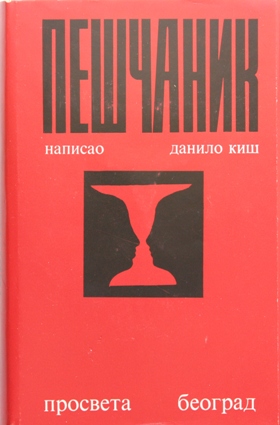Hourglass
Danilo Kiš

The third book from the "Family circus" trilogy, at last! It took me a while because I was reading 3 other books simultaneously and then got distracted by manga and anime... Anyway, this one was the craziest of all. Kind of an antinovel almost. Weird form, a lack of form, although the more you read the more you get into the style. This book was based on a long crazed letter Danilo's father wrote to one of his sisters in April of 1942. Apparently the letter never got sent, and it was Danilo's only remaining proof of his past and where he lived. In the letter his father talks about the way his remaining siblings treat him horribly (by not lending him enough money lmao), about where he lives currently, about how his former rented apartment collapsed right as he exited it etc. The book is divided into a few intermingled parts and most of the book is written in an interrogation style, concerning the collapsed house. The main character, E.S., has to recount many of his actions leading up to the event and what happened afterwards. This is a book I'd definitely have to re-read later in life, and I often found myself retracing through paragraphs to make sense of things. One interesting thing I noticed is that only in the last portion of the book does the main character come into the focus. Until then it's pretty unclear who's narrating, and it gradually becomes more clear. There's a lot of "hidden" references to the Holocaust (bar the actual interrogation), like certain humiliating bureocratic processes E.S. had to go through, fear of being stopped by the police, a lot of allegories like the rats that destroyed his house, being chased by dogs, long chimneys etc. etc. but they're even more in the background of the whole story compared to the other two books. Maybe hidden reference isn't the right word, more that they're presented very matter-of-factly that it forces you to gloss over it. Great example of unconventional holocaust literature. Really a long way from Psalm 44, and I think this literary journey was pretty rewarding in that sense.
